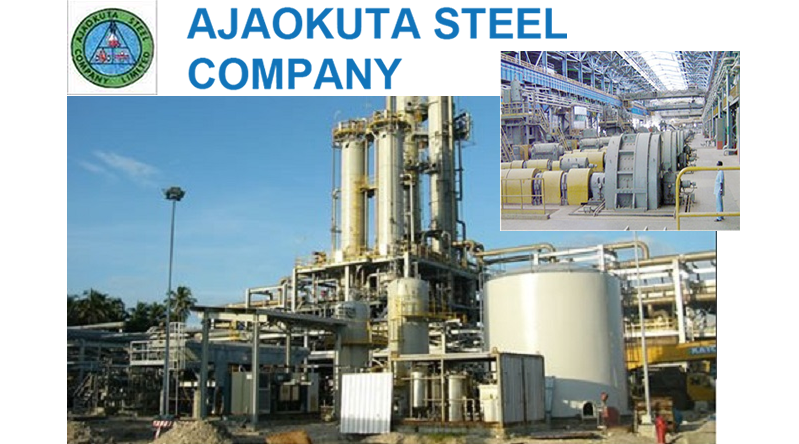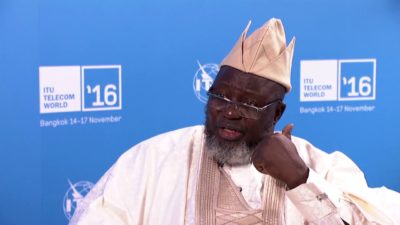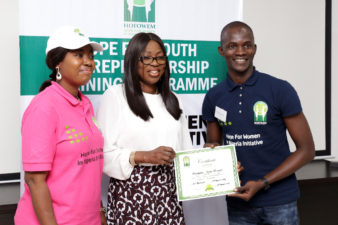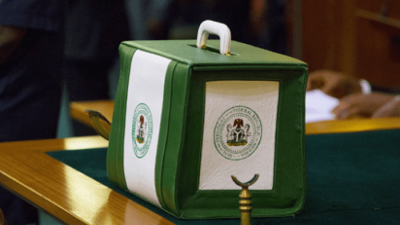By KEMI KASUMU
At The DEFENDER, we gathered that the Nigeria’s Federal Government has settled the long-standing contractual dispute with a foreign investor group in the steel space of $5.258 billion for $496 million, according to a statement by Attorney General of the Federation and Minister of Justice, Malam Abubakar Malami, who is a Senior Advocate of Nigeria (SAN).
In the statement issued on Sunday and signed by Dr. Umar Jibrilu Gwandu, Special Assistant on Media and Public Relations to the Attorney General of the Federation and Minister of Justice, it was stated that the mediation proceedings were under the International Chamber of Commerce (ICC)’s Alternative Dispute Resolution (ADR) framework, led by Mr Phillip Howell-Richardson.
The settlement agreement, the Attorney General pointed out, came into effect on 19 August 2022.
This online newspaper recalls that on March 12, 2022 President Muhammadu Buhari-led Federal Government’s efforts to diversify the economy away from volatile oil revenue saw the inauguration of the Ajaokuta Presidential Project Implementation Team to revive the industrial transformational conglomerate with the Secretary to the Government of the Federation (SGF), Mr. Boss Mustapha, as its Chairman while the Minister of Mines and Steel Development was the alternate Chairman.
According to the SGF, Buhari’s administration was focused on making the Ajaokuta Steel Company (ASC) West Africa’s largest fully integrated producer of steel and most importantly to accelerate industrialization in steel-related industries.
The revamp of the steel plant, it was said, would be supported with funds from AFREXIM bank as well as Russia Export Centre and about US$1.46 billion was expected to be committed to the project.
The ASC was a major industrial project conceived after the discovery of iron ore and coal deposits in commercial quantities in Nigeria under the military regime of General Yakubu Gowon in 1970. Consequently, the Federal Government signed a contract with Tzazh Prom Export (TPE) from Russia to carry out further feasibility studies and initiate the project. By 1979 under the military regime of General Olusegun Obasanjo, just before the civillian administration of Alhaji Shehu Aliyu Usman Shagari, Ajaokuta Steel Company Limited and Delta Steel Company Limited were established under the National Steel Council Decree.
From that time the construction had begun and by the time in 1983 Alhaji Shehu Shagari, whose administration had taken over since October 1, 1979 was in its election year, the project had reached 95 percent completion rate. President Shehu Shagari at the time commissioned the plant and the agreed plan was to fund the remaining five percent of the project using profits generated by the company.
However, after almost four decades of several concessions and legal disputes with foreign private companies, Ajaokuta steel company remains derelict. The failure of the project has been blamed on several factors with poor management being the leading factor. International politics also played a part in installing the project.
The USSR who at that time was Nigeria’s main partner was in a cold war with the USA. Thus, Nigeria found it difficult to raise funds from multilateral bodies like the World Bank and the International Monitoring Fund (IMF). Concessions to foreign private managers also proved unsuccessful due to the remaining 5 percent of the project representing critical infrastructure yet to be developed.
Nigeria has the second-largest iron ore deposit in Africa with over two billion tonnes in reserves.
Nevertheless, the Nigerian steel industry today remains almost totally dependent on imports of rolled steel for local production. Poor investments in iron ore extraction and many other structural bottlenecks have hindered the growth of an industry with enormous potential and the industry is still experiencing negative growth (2019; -1.33%, 2018; -0.75%) based on data obtained from the NBS.
In 2016, the Buhari administration settled the pending court case around the project. This has enabled the FG to take control of the project and drive its resuscitation.
On Sunday September 4, 2022 when the issue came to the fore, it was stated that Nigeria succeeded in reducing the claim in mediation brought by the international firm of King and Spalding LLP, an American international corporate law firm that is legal representative of the Global group, by 91 percent. A claim for over $10 billion was threatened in arbitration before the International Chamber of Commerce, International Court of Arbitration, Paris, in respect of five major contracts of 2004-2007 – covering steel, iron ore, and rail.
It might be recalled that the seeds of the disputes can be traced to five contracts entered into by the 1999 -2007 administration that gave complete dominance over the Nigerian steel space to one company group, the Global Steel group.
However, in 2008 a new administration proceeded to terminate these contracts contrary to legal advice supplied by the Federal Ministry of Justice, which cited the termination cost in the form of damages.
The statement noted that had the government of that day not terminated the Ajaokuta Share Purchase Agreement on 1 April 2008 and waited for just 55 days to terminate, it would have terminated lawfully and the Government would have collected more than 26 million USD from Global Steel.
This was because the firm appeared unable to pay the first tranche for the Ajaokuta shares before the first anniversary of the agreement (25 May 2008). This failure would have given Nigeria a right to over $26 million as liquidated damages under cl.12 of the Ajaokuta Share Purchase Agreement.
Global steel, in consequence, took the FGN to the International Chamber of Commerce, International Court of Arbitration, Paris, commencing arbitration in 2008. Although the Federal Government negotiated a settlement in May 2013, the previous administration failed to implement its settlement agreement.
In May 2020, Global threatened a resumption of the arbitration and announced an anticipated claim in damages of over $10-14 billion against the Nigerian State in respect of the affected 5 contracts.
The administration of President Muhammadu Buhari, however, took decisive steps to resist this claim, rather than pass it on to a future administration with ballooning interest.
With this development, Malami said President Muhammadu Buhari has now rescued the steel industry from interminable and complex disputes as well as saving the taxpayer from humongous damages.
The Minister also stated that one of the lessons to be learnt included that the future arrangements – sale or concessions – must be carried out in the national interest and in compliance with the law.
The Office of the Attorney General of the Federation and Minister of Justice grappled with the inherited problem by adopting a blueprint of seven principles for the cost-effective resolution of contractual disputes wherever they occur.
They are the use of institutional mediation, choice of FGN counsel, the use of financial advisers with reputational capital, the importance of not discouraging foreign investment, fiscal responsibility, transparency, and the recognition that joined-up government produces superior outcomes.
The FGN engaged PwCNigeria to do a comprehensive review to ensure taxpayers are protected. Also, Dr Tunde Ogowewo, a barrister (and senior academic at King’s College London), represented the FGN and advised the government throughout the process. The Attorney-General of the Federation and Minister of Justice, Abubakar Malami stated of Dr Ogowewo’s report:
“FGN Counsel’s Report on Case Reference 15539/VRO/AGF/ZF/TO/AZR/SPN)_ – of over 1,000 pages provided a guide on how to avoid such contractual disputes and, where they occur, how to reach cost-effective savings for the benefit of the Nigerian taxpayer.”
Malami, therefore, reiterated the commitment of President Muhammadu Buhari-led Federal Government of standing firm to continue to make assiduous efforts in protecting the public interest and ensuring that Nigeria is not denuded of its resources through whatever means.




